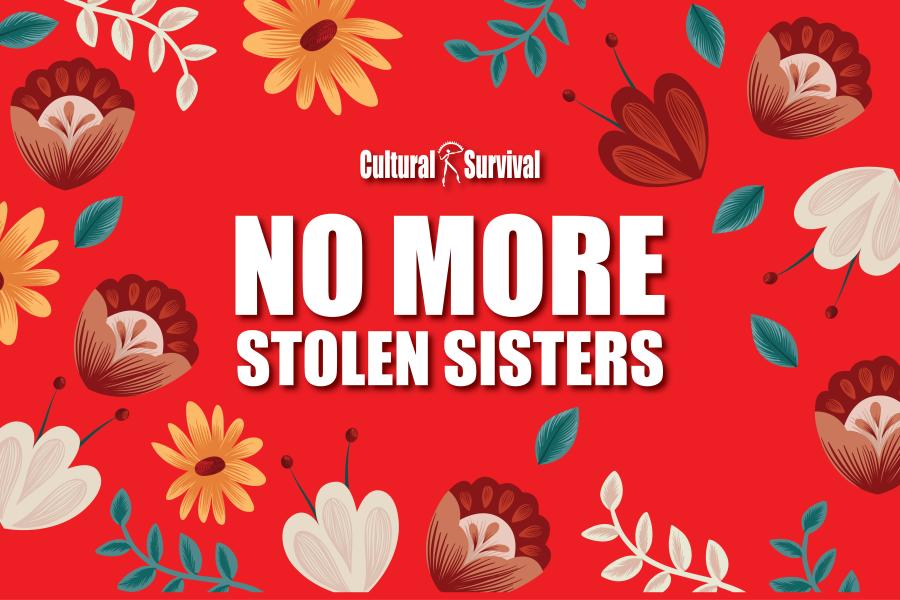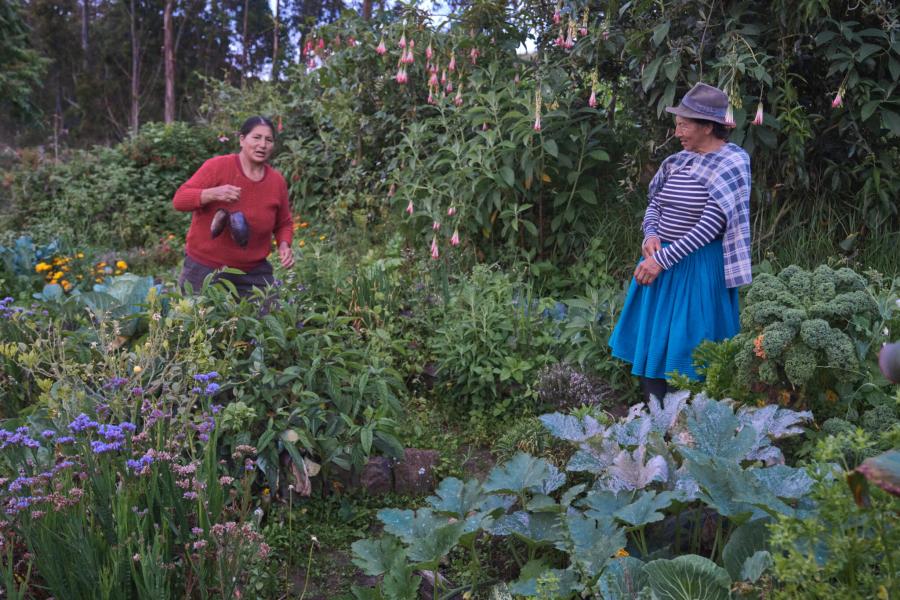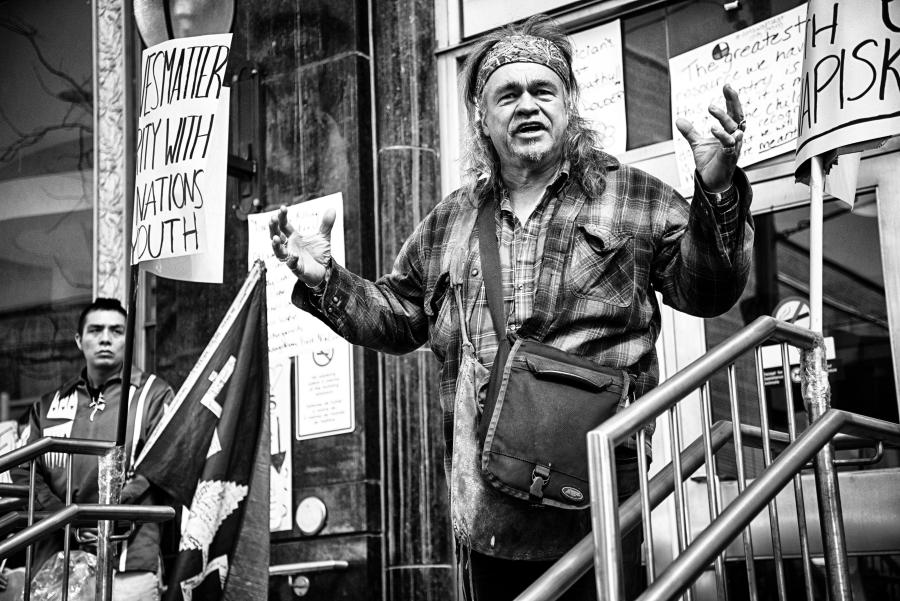Picture an island of towering, frozen, black rock and a few stands of small trees. Snow blows between buildings that are supposed to be houses -- most of you would call them shacks. It must be negative 40 degrees, probably colder with the wind. A few thin dogs search among refuse piles, or root among the brown stains where people have emptied their honey buckets. Other than smoke from the chimneys, the town seems abandoned. But from one small shack, you can hear the sounds of young children. Some of them are crying, the others laughing as if possessed. They all claim they want to die. They have been sniffing gasoline for days, and the shack's unheated air is thick with the fumes. There is no food, and none of the children have seen their parents for days.
Under the moon and a blanket of stars, tents glow like lanterns against the snow. Smoke and red embers drift upward from the chimneys of tin tent stoves, and the smells of balsam boughs, freshly-cut firewood, and cooking caribou meat permeate. Inside, an elder leans against the tent's wall, takes a long puff on his pipe, and begins to talk to his grandchildren, who are nestled together under thick blankets, about the old days. In the comer, a small baby is rocked gently to sleep in a hammock strung between the poles of the tent near the stove. Her grandmother sings softly as she stretches a beaver skin over a wooden frame.
These images might seem worlds apart -- and they are. But they are both parts of the Innu reality. Making sense of this reality is not easy to do, even for those of us who live it every day.
Like many indigenous people around the world, the Innu have a particular place that we call home. We call our land Nitassinan. It is a place of rare beauty; of rugged tundra, ancient forests, and lakes and rivers that have, for the most part, remained ours to enjoy. Within the memories of our elders and our parents -- and for some of us, our own lifetimes -- the land, not the communities we now live in, was our home. Until the 1940s, or even the 1960s for some of us, we lived as Innu always had -- as nomadic hunters. In the summer, we stayed on the coast, fishing for salmon, trading our furs, and working, occasionally, for wages as laborers. But from the fall through the spring, we traveled by canoe and by snowshoe throughout our vast land, following the caribou herds. Rarely, if ever, did we encounter agneshau, English-speakers or Europeans.
We, the Innu of Labrador, are not registered Indians, do not live on reserves, and have never surrendered our traditional territory or our aboriginal rights. This is because when Newfoundland joined Canada in 1949, the aboriginal peoples of Newfoundland and Labrador were ignored. As a result, we were not registered as Indians under the Indian Act, were not granted reserves, and were not allowed access to the range of programs, services, and local governance generally afforded First Nations in Canada. This situation exists to this day and has contributed to the crisis in our communities.
My parents remember when Newfoundland joined Canada and the government decided to "civilize" us. The government built houses for us, and the priests convinced our parents that we children should attend school. I remember the confusion of those early years in the community, as we tried to adapt our values and our culture to these new conditions. I remember alcoholism, the violence that tore our families apart, the abuse by priests, and a sense of being strangers -- of being outsiders -- in our own land.
I could tell you many stories from my own young life about how the Innu people have been treated by the government, and my mother could tell you so many more. I could talk about the ways in which state-sponsored welfare eroded our families and created the worst kinds of dependency; how our parents, hunters all their lives, were prosecuted by wildlife officers for trying to feed their families; and how our teachers tried to make us ashamed of being Innu. I could tell you about the mines, about the hydroelectric developments that flooded thousands of square miles of our territory, and about the military jets that train in low-level tactics above our tents. I could tell you what it feels like to look at a map and see "Province of Newfoundland, Canada" instead of "Nitassinan." And I wish I could tell you that all of these things are in the past.
But I'm here to talk about hope. One of the things that Innu are working to overcome is how difficult and painful it is for many of our young people to think about the future. We have suicides and solvent abuse statistics that are among the highest in the world. I think that there is really one simple explanation for all of it. So many of our young people's lives are clouded by despair. Until we address this basic problem, very little will change. The Innu will not be healthy until we are well enough, as a society, to have a sense that our future won't be more of the same.
What will make the difference? There are many answers to that question. One thing we've learned in trying to help our children overcome solvent abuse is that solutions must start with the Innu. When some of us first started seriously working with our troubled youth, we sent the kids out for treatment. This worked for us, but not for most of them; while they (technically) "got better" while away, it didn't take them long to return to the same self-destructive habits when they came back to our communities. We then began to look at the children as regards what was going on in their homes and with their other family members. We soon realized that we needed to heal the family as a whole. We started developing programs that focused on families and groups of families that were dealing with similar issues. A good number of the issues these families dealt with concerned the stories and circumstances of our people and how they had tried and failed to adapt to the new circumstances of their lives.
For a proud, self-reliant people like the Innu, being placed in a situation of enforced dependency in a permanent community -- living under rules made by strangers -- marked a loss of control that has resonated throughout our lives and those of our families. While we are taking important steps to regain control, some fundamental obstacles have been created by the very governments that claim to be helping us.
Canada and the province of Newfoundland continue to blame each other for problems facing the Innu, and fight over who should take responsibility for dealing with the crisis in our communities. While the governments bicker, Innu continue to suffer from a lack of resources and of sufficient authority to exercise real control over our lives and our land.
Gas sniffing is epidemic among the youth and alcoholism is a significant problem for many adults. Abuse of many kinds exists in both communities. Housing is inadequate, with as many as three or four families sharing single-family dwellings. Unemployment exceeds 80 percent. The education offered to our children is culturally and socially inappropriate with absolutely dismal completion rates; less than 5 percent of our children entering kindergarten graduate from Grade 12. Classes are held in broom closets, and conditions have deteriorated to the point where the school in Sheshatshiu was recently condemned by a federal inspector and closed by concerned parents. Policing services are provided by the Royal Canadian Mounted Police -- "the Mounties" -- but with only limited involvement on the part of Innu people. We have had some success in establishing alternative sentencing arrangements and alternatives to prison, since the Canadian justice system has proven to be incapable of dealing with the social problems at the root of the situations leading to criminal charges for our people. Our efforts to establish our own justice system, enforce our own laws, and deal with our own problems in our own ways, however, are being met with resistance at many levels.
People shouldn't have to live this way. We realize that the problems afflicting our communities will not be resolved by outside governments or agencies. Our leadership is willing and has been empowered by our people to take responsibility for our future and that of our children. What we require are the tools to undertake this responsibility: funding; control over programs and services such as education, heath care, and healing services; and the power to exercise local governance over our communities and our territory.
We continue to work for a just land rights settlement and self-government agreements, but progress is frustratingly slow. We've been at the table for nearly 10 years, and despite significant concession on the part of the Innu, we are still far from agreement on issues.
We need the support of Canadians, Americans, and people around the world to achieve this. Our own efforts -- either at the table in negotiations or through protests, court actions, and civil disobedience -- have had little effect. The Canadian government has consistently failed to deliver on its promises and commitments to the Innu.
That all of you are here today is reason for hope. With your help, we know that the world can change. We do not live in the same world as the one my parents grew up in; it is no longer acceptable for countries to attempt to eradicate or assimilate indigenous minorities. This is not to say that such things are not being done, but I believe that world opinion no longer finds such things acceptable. I believe that Innu will, in my lifetime, regain control over our land and our way of life. My hope is that the government and citizens of Canada, the United States, and colonial powers everywhere will soon come to understand that by recognizing the rights of the Innu, and giving us the means to once again govern our lives, we all will realize our goals of living in a just world.
Thank you. Tshinaskinumitan
Article copyright Cultural Survival, Inc.



